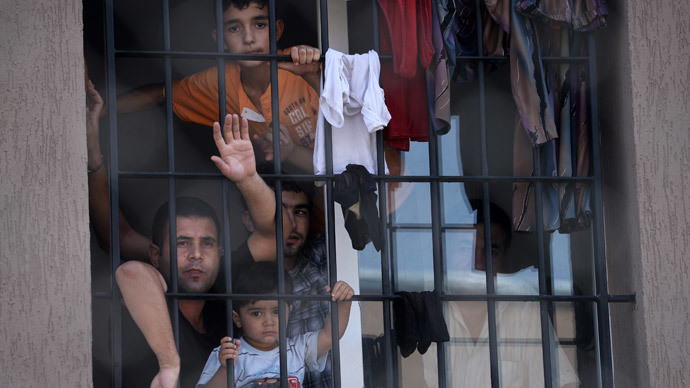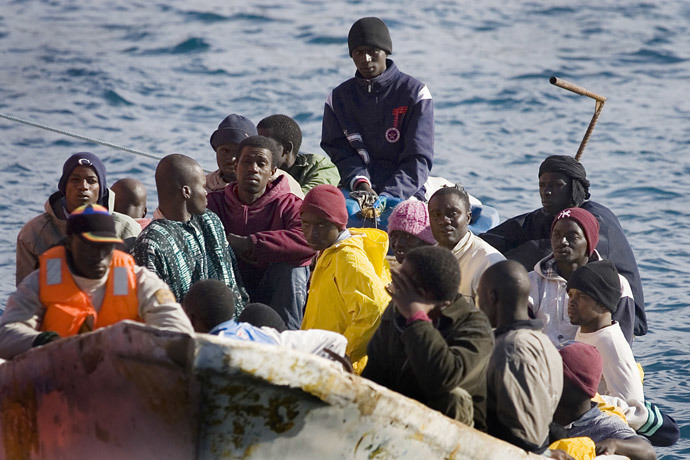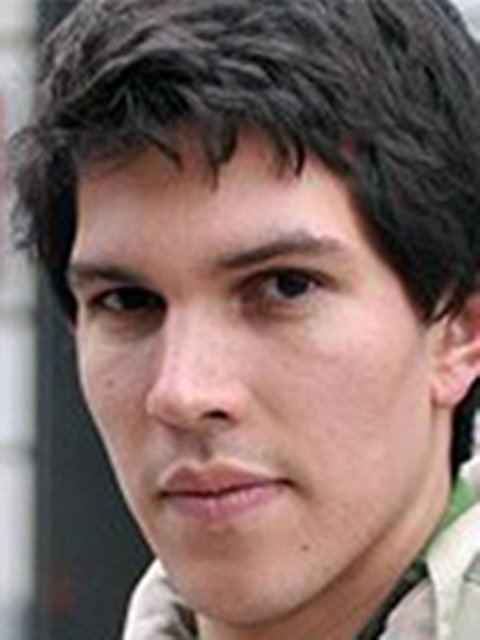In Europe refugees are guilty until proven innocent

Between October 13 and this Sunday October 26, more than 18,000 police officers were deployed all across Europe in an operation cryptically labeled “Mos Maiorum” which translates into “according to our forefathers’ custom.”
The operation initiated by the Italian Presidency of the Council of the European Union sought to record migration movements in the hope to crack down on human trafficking and smuggling rings operating within the EU’s borders.
In reality the police action amounted to nothing less than a racial profiling exercise on an unprecedented scale. Migrants and refugees without valid papers or residence permits were detained and faced blanket criminalization. Ironically, even FRONTEX distanced itself from this operation.
Not only does the action represent a further escalation against Europe’s migrant and refugee communities, it also reveals that the law’s basic tenet – innocent until proven guilty – has been turned on its head. In Europe, refugees are guilty until they can prove themselves to be innocent.
At present, refugees from war and crisis-ridden countries have no way of reaching Europe by legal means. They cannot simply board a ferry or airplane. They are forced to risk their lives to enter the European Union, as this video of Syrian refugees travelling to North Africa to cross the Mediterranean shows.
In doing so, the European Union forces migrants and refugees into the hands of traffickers and smugglers. Once in the EU, they have no right to leave their country of entry under the Dublin III regulations. Neither do they have the right to education, health care, or regular employment. Thus, the European Union has created what the Open Society Foundation has called “irregular communities outside the protection of the law.”
Europe’s self-racialization
Yet “Mos Maiorum” also revealed a deeper truth about the European project; a truth which the French philosopher Etiene Balibar already pointed out in the early 1990s. European identity is self-racializing. In other words, European identity explicitly conceives itself as “white” and “Christian” thus excluding millions of people from this supposed project of solidarity and unity called Europe.
Inasmuch as this logic helped politicians and the media to label every Muslim a terrorist after the Madrid and London bombings, every refugee is considered a de facto criminal – for simply having entered Europe. It is a powerful logic which has its roots in Europe’s past.

It takes us back to the Victorian Age with its deserving and undeserving poor. The difference is that in today’s neoliberal Europe that logic has been successfully racialized. There are so-called “good” and “bad” migrants; those who deserve to be in Europe and those who are not.
While some immigrants are more compatible with so-called European culture due to their ethnic and religious background, others such as migrants’ cultures, lifestyles and religions are deemed incompatible with the European identity. Love of neighbor does not extend to migrants of Muslim descent, Sinti or Roma.
It is against this backdrop that Italy has stopped its search and rescue mission Mare Nostrum.
The UNHCR showed “concern” over the ending of the project. Yet the media remained silent. In the last decade the Mediterranean has become a graveyard for tens of thousands of refugees. With the end of the rescue mission, many more thousands will drown at sea.
Meanwhile hundreds of police officers have been deployed in Calais, France as a new center for migrants has opened. France hopes that this will keep the migrants out of the town center. Just last week police fired tear gas at 300 refugees seeking to jump on passing trucks at Calais port. This is what integration looks like in 2014: detention camps, barb-wired high security fences, and battle pitches with police.
The limits of the European project
This highlights the limits of the European project more than anything. The EU’s principle of freedom of movement of capital, goods, services and people has seemingly run against its own limits. Freedom of movement only counts for those already deemed “European.”
But the logic of the European Union and European identity is a vicious cycle, encompassing ever new groups of people even from within Europe’s very own borders.
UK Prime Minister David Cameron’s latest suggestion to cap the number of low-skilled immigrants permitted to work in the UK to 100,000 shows that some of Europe’s leading lights want to throw Europe’s “freedom of movement” overboard.
It is clear that Cameron fears the rise of the UK Independence Party and has sought to out-flank UKIP with his last comments. But this is not the first time he has made such remarks. Let us not forget that he has previously argued that Greek immigration to the UK would have to be capped if the Greek economy defaulted or collapsed.
Neither former EU President Manuel Barroso’s utterance that Cameron is committing an “historic mistake” or incoming President Claude Juncker calling Cameron’s words “irresponsible” will solve the problems.
The EU needs to adopt a different kind of logic - one that does not criminalize migrants and racialize European identity. That would be a start.
The statements, views and opinions expressed in this column are solely those of the author and do not necessarily represent those of RT.
The statements, views and opinions expressed in this column are solely those of the author and do not necessarily represent those of RT.













